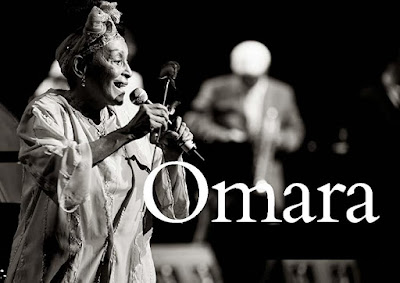Brave Cubans are planning a mass protest next Monday (#15N), planned by a leftwing playwright whose work was formerly produced by the state. It will follow the example of other mass protests organized by the San Isidro Movement, a dissident artists’ collective. However, you wouldn’t know there was any unrest or oppression in Cuban from this glowing documentary portrait of Omara Portuondo, the beloved Buena Vista Social Club vocalist—and that’s just not good enough anymore. Portuondo’s artistry is lovely, but it doesn’t exist in a vacuum, which is largely how it is presented in Hugo Perez’s Omara, which screens as part of this year’s DOC NYC.
Portuondo originally came to prominence as part of the Cuarteto d’Aida, along with her sister Haydee. They even opened for Nat King Cole at the Tropicana. Then the revolution came and Haydee left for America, while Omara stayed and went solo. Over the years, she frequently toured internationally, but Ry Cooder’s Buena Vista Social Club recordings took her to an even higher level.
Even now in her early 90s, she still performs with verve, as we see from her command performance at the same Tropicana, in the opening scene. What isn’t acknowledged is such venues are typically off-limits to average Cubans, and are reserved for the music (and sex) tourists the Cuban government caters to.
Yes, it is great to hear Portuondo. She can caress the lyrics to “Besame Mucho” like nobody else. However, Perez simply cannot ignore what in going on in Cuba’s streets and in its plentiful prisons. You just can’t not ask her about these developments, especially since she has obviously enjoyed privileges (she wouldn’t have traveled so extensively, or at all, otherwise).
Can you make a film solely and entirely about Portoundo’s music? Perhaps, but stripping away all cultural and historical context would admittedly be a tricky business. Frankly, any film that does not ask tough questions of its subject risks its credibility. If Perez and company were not comfortable asking such questions while in-country, it is even more problematic that they never admit this. It is all rather a shame too, because there are several terrific performances and it is always nice to hear from musical admirers, like Chucho Valdes and Arturo O'Farrill.
The truth is Cubans have been suffering for years at the hands of this pariah regime—just ask the Ladies in White. This is not right-wing propaganda and it is no longer acceptable to ignore it. Please, continue to enjoy Portuondo’s music, but we just cannot recommend Omara as something called a “documentary,” given how blindered and self-censored it is. It screens in-person 11/13 & 11/15 and online 11/14-11/28, during DOC NYC ’21.

